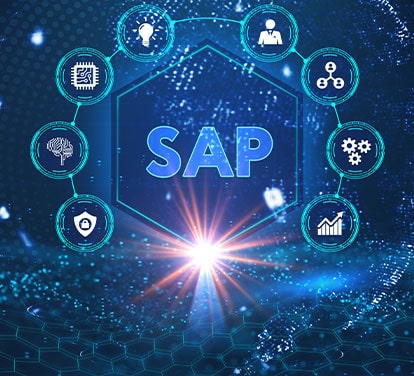Did you know that 67% of companies are investing in integrations to improve close rates? (Source: The State of SaaS Integrations Report) This statistic highlights a critical challenge: without seamless integration, businesses risk losing valuable opportunities. Yet, many organizations continue to face significant hurdles, including outdated legacy systems, growing data silos, and manual processes that slow operations and increase errors.
As companies adopt diverse SaaS applications and cloud solutions to stay competitive, the lack of interoperability between these tools becomes a major roadblock. These disconnected systems hinder operational efficiency, limit scalability, and make it difficult to achieve a unified view of business-critical data. Addressing these issues is no longer optional—it’s essential for staying agile in a rapidly evolving market.
Microsoft Azure iPaaS services offer a powerful solution, enabling businesses to break down these barriers and orchestrate data effortlessly. Partnering with an experienced Azure expert ensures you can fully harness these capabilities to drive integration, efficiency, and growth.
This is where Azure iPaaS (Integration Platform as a Service) comes into play, offering a solution that simplifies and accelerates the integration of disparate systems, enabling businesses to automate workflows, manage APIs, and orchestrate data across environments effortlessly. By addressing these integration challenges head-on, Azure iPaaS helps organizations unlock new levels of efficiency and agility, ensuring they stay competitive in an increasingly connected world.
The Power of Azure iPaaS: Simplifying Complex Integrations
Azure iPaaS offers a strategic solution for businesses looking to modernize and optimize their integration strategies. Built on Azure’s secure, scalable cloud infrastructure, Azure iPaaS provides a unified platform to manage both traditional and digital-native applications, whether on-premises, in the cloud, or across hybrid environments. With Azure Integration Services and low-code capabilities, IT teams can quickly design, deploy, and manage integrations, reducing time to market and enabling faster responses to business demands.
Through powerful components such as Logic Apps, Service Bus, Event Grid, and API Management, Azure iPaaS enables organizations to create event-driven architectures, manage real-time data flows, and support complex hybrid integrations. This scalability and flexibility make Azure iPaaS a key player in any digital transformation strategy, equipping organizations to handle evolving integration needs without the overhead of custom-built frameworks.
The importance of Azure iPaaS solution lies in its ability to streamline, automate, and modernize enterprise integrations by leveraging Azure’s cloud-native tools. It plays a crucial role in enabling businesses to adapt to digital transformation, improving operational efficiency, and enhancing agility in today's fast-paced environments.
Jade accelerators are pre-built tools, frameworks, and templates designed to streamline and expedite the implementation of Azure iPaaS for their customers. These accelerators help reduce complexity, shorten development timelines, and ensure a more efficient and cost-effective integration process.
Key Features of Azure iPaaS
Azure iPaaS is distinguished by its robust set of features tailored to meet the integration needs of enterprises:
- Low Code/No Code Integration: Azure iPaaS enables users to create complex integrations with minimal coding, empowering non-technical team members to automate workflows efficiently.
- Scalable and Flexible: Easily scale integrations as organizational needs evolve, all without concerns about infrastructure management.
- Hybrid Capabilities: Support for both on-premises and cloud-based systems makes Azure iPaaS ideal for organizations bridging legacy and modern architectures.
- Extensive Connectors: Access to hundreds of pre-built connectors simplifies integration with popular SaaS applications like Salesforce, SAP, and Office 365
- Event-Driven Architecture: Create real-time, responsive workflows with services like Event Grid, improving agility and responsiveness.
Core Components of Azure iPaaS: Building Blocks for Seamless Integration
Azure iPaaS services comprise a suite of flexible frameworks for integrating diverse applications and automating workflows. Key components include:
- Azure Logic Apps: The primary automation engine, Logic Apps, allows organizations to design and deploy workflows across applications and services with minimal effort, driving automation throughout the organization.
- Azure Service Bus: This messaging infrastructure facilitates reliable communication between applications, supporting message queuing and integrating on-premises systems with cloud-based applications.
- Azure Event Grid: Enables event-driven architectures, allowing applications to trigger automated responses to real-time events and enhancing process responsiveness.
- Azure API Management (APIM): Centralizes API creation, publication, and management, ensuring secure data access for partners, customers, and internal teams.
- Azure Functions: A serverless compute service that allows custom code execution in response to events, extending workflow functionality without additional infrastructure requirements.
These components collectively empower organizations to build flexible, real-time, and hybrid integrations that support their evolving operational needs.
Addressing Integration Challenges with Azure iPaaS
While Azure iPaaS simplifies integration, some enterprises encounter challenges during adoption. Here’s how Azure iPaaS, combined with strategic practices, addresses these obstacles:
- Legacy System Integration: Many organizations face difficulty integrating legacy systems with cloud services. Azure iPaaS’s hybrid capabilities facilitate secure, efficient data flow across on-premises and cloud systems without extensive re-engineering.
- Data Security and Compliance: With built-in enterprise-grade security features, including encryption and role-based access control (RBAC), Azure iPaaS meets compliance requirements. A hybrid approach helps organizations keep sensitive data on-premises while leveraging iPaaS for broader automation.
- Migration Complexity: Migrating to iPaaS requires careful planning. A phased approach, beginning with less critical processes, can simplify migration and minimize disruptions, allowing organizations to validate processes incrementally.
- Vendor Lock-In Concerns: Azure iPaaS supports open standards and multi-cloud strategies, allowing companies to adopt hybrid and multi-provider solutions to avoid over-reliance on a single vendor.
- Skillset Gaps and Organizational Resistance: Training programs and collaboration between IT and business units foster cloud adoption and help bridge skill gaps, creating a culture of innovation and efficiency.
Real-World Use Cases for Azure iPaaS
Azure iPaaS serves as a versatile solution across industries, addressing a wide array of integration challenges. Some common use cases include:
- Automating Business Processes: Azure Logic Apps enables automation of complex workflows such as document approval, CRM and ERP data synchronization, and email processing, enhancing productivity by reducing manual tasks.
- Hybrid Cloud Integration: Many organizations require a seamless link between on-premises systems and cloud applications. Azure iPaaS supports hybrid connectors, bridging legacy and modern systems to maintain data continuity and support gradual cloud migration.
- Event-Driven Integration: Azure Event Grid and Service Bus facilitate event-driven applications that respond to real-time changes. For example, an incoming customer order can automatically initiate inventory updates, payment processing, and delivery scheduling.
- B2B Integration and EDI: Industries like manufacturing and retail rely on secure B2B communications. Azure iPaaS supports electronic data interchange (EDI) workflows through Logic Apps and API Management, enabling scalable, reliable transactions across supply chains.
- API Gateway and Management: Azure API Management allows businesses to expose APIs securely, offering controlled access to data and applications for partners, customers, or internal teams, with capabilities like monitoring, versioning, and security protocols.
Here are industry-specific Azure iPaaS statistics, along with their sources:
1. Manufacturing (Source: Gartner and Deloitte reports)
- Adoption Rate: 56% of manufacturers have integrated iPaaS to streamline processes like supply chain management and IoT connectivity.
- Impact: Manufacturers using Azure iPaaS experience a 35% reduction in downtime by integrating ERP and production systems.
2. Retail (Source: Gartner reports)
- Adoption Rate: 67% of retailers have adopted iPaaS for omnichannel experiences and real-time inventory management.
- Impact: Retailers using Azure iPaaS report a 30% reduction in order processing time and 20% higher customer satisfaction.
3. Financial Services (Source: Financial Times and Deloitte reports)
- Adoption Rate: 50% annual growth in iPaaS adoption within financial services to integrate banking systems with compliance tools.
- Impact: Azure iPaaS helps financial institutions reduce compliance errors by 40% through automated reporting processes.
4. Healthcare (Source: Gartner and HIMSS Insights)
- Adoption Rate: 58% of healthcare providers use iPaaS to connect EHRs, patient systems, and IoT devices.
- Impact: 50% improvement in patient data accuracy and a 35% reduction in administrative workloads using Azure iPaaS.
5. Logistics & Supply Chain (Source: IDC & Gartner reports)
- Adoption Rate: 65% of logistics companies use iPaaS for real-time shipment tracking and transportation management integration.
- Impact: Azure iPaaS helps logistics companies improve delivery efficiency by 25% and reduce operational delays by 30%.
6. Energy & Utilities (Source: Gartner and IDC reports)
- Adoption Rate: 45% of energy companies are using iPaaS for SCADA system integration and real-time analytics.
- Impact: Companies see a 20% reduction in energy consumption and a 25% improvement in predictive maintenance with Azure iPaaS.
7. Telecommunications (Source: Gartner and GSMS reports)
- Adoption Rate: 60% of telecom providers use iPaaS for API management, customer service, and billing integrations.
- Impact: Telecom firms reduce integration time by 50%, improving response times by 25%.
8. Government & Public Sector (Source: IDC and Deloitte reports)
- Adoption Rate: 52% of government agencies are adopting iPaaS for service delivery integration between cloud and legacy systems.
- Impact: Public sector organizations see a 40% improvement in process automation through Azure iPaaS.
Conclusion
Azure iPaaS offers a robust, cloud-native integration solution that empowers organizations to streamline complex workflows, connect disparate systems, and automate essential processes. By unifying data across applications and environments, Azure iPaaS simplifies the integration landscape, enabling businesses to operate with greater agility, reliability, and efficiency.
As companies strive to keep pace in a digital-first world, Azure iPaaS provides the scalability, security, and flexibility essential for sustainable growth. From event-driven workflows to secure API management, Azure iPaaS is a powerful strategic asset for organizations looking to achieve seamless connectivity and support digital transformation. Through careful planning, phased adoption, and leveraging hybrid integration capabilities, enterprises can fully harness Azure iPaaS to realize a future of connected, data-driven operations.
As a Microsoft Gold Partner, Jade Global brings deep expertise in Azure iPaaS, helping organizations unlock seamless integration and automation across their digital ecosystems. With Jade Global’s tailored solutions, businesses can accelerate their digital transformation, ensuring agile, scalable, and secure operations in an increasingly connected world













